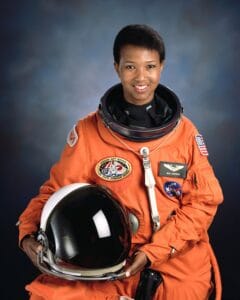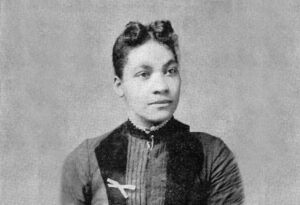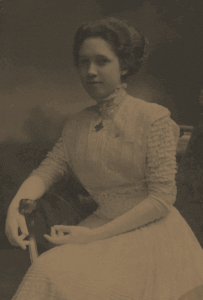This Women’s History Month, we’re spotlighting Black women who overcame adversity to create successful, thriving careers in STEM. Their drive to succeed and follow their dreams, despite the challenges and inequity they often faced, inspires us and our students each and every day.
Mae Jemison

Mae Carol Jemison was the first Black woman to travel into space when she traveled on the space shuttle Endeavor in 1992.
Born in Decatur, Alabama in 1956, Jemison grew up watching space exploration on TV and wanted to study science from a young age. She moved to Chicago when she was very young, eventually graduating from high school at only 16 years old; she then moved to Stanford, California, to study Chemical Engineering and African and African-American Studies. Jemison faced discrimination as one of the only Black students in her class, but persevered to attend Cornell Medical School.
After serving in the Peace Corps for two years, she opened her own medical practice, but shortly thereafter applied for NASA’s astronaut program. She was accepted to the program in 1987 as one of 15 people out of over 2,000 applicants. Jemison made history on September 12, 1992, when she and six other astronauts went to space aboard the Endeavor shuttle.
Jemison left NASA in 1993, and has since started a consulting firm, taught at Cornell University, and made an appearance on the TV show Star Trek. “We look at science as something very elite, which only a few people can learn. That’s just not true,” she told the Chicago Tribune in 1994. “You just have to start early and give kids a foundation. Kids live up, or down, to expectations.”
Rebecca Lee Crumpler

Rebecca Lee Crumpler, born February 8, 1831, was the first Black woman to become a doctor of medicine in the United States.
Originally from Delaware, Crumpler moved to Massachusetts and began working as a nurse without formal training in 1852. She attributed her drive to succeed in medicine and help others to the aunt who raised her; her aunt’s abilities to care for sick members of their community inspired her to pursue her career. She started classes at the New England Female Medical College in 1860, and graduated as the first Black woman in the U.S. with a medical degree in 1864. She went on to publish A Book of Medical Discourses in 1883, a landmark book which explains pediatric care for medical professionals and mothers.
After the end of the Civil War in 1865, Crumpler moved to Richmond, Virginia to work with the Freedmen’s Bureau in providing medical care for formerly enslaved people. Though she faced prejudice, Crumpler felt that she was engaging in “real missionary work” in Richmond and persevered. She later returned to Boston to provide care for women and children.
Today, Rebecca Lee Crumpler is memorialized on the Boston Women’s Heritage Trail, and celebrated annually on Dr. Rebecca Lee Crumpler day in Virginia.
Euphemia Haynes

Euphemia Haynes was the first Black woman to get a PhD in mathematics, graduating from the Catholic University of America in 1943.
Haynes was born in Washington, D.C. in 1890 to a dentist and teacher. After excelling in her secondary and undergraduate studies, she enrolled at the University of Chicago as a graduate student in math and education and finished her masters degree in 1930. She became the first Black woman to earn a doctorate in math in 1943, after which she returned to education.
For 47 years, Haynes taught math in public schools in the Washington, D.C. area, and promoted the integration of D.C. public schools while serving as the chair of the D.C. School Board. During this time, Haynes promoted advancements in math testing for elementary and secondary schoolers, and worked alongside many community service organizations.
Overall, Haynes dedicated her life to education, research, and community work, creating milestones of progress along the way.
All of these women are inspiring, not only for their achievements but for their dedication to youth and education throughout their careers. Their relationships with women and Black role models showcase the importance of representation. At Project Exploration, we aim to make STEM a more inclusive field with engaging, student-driven curricula and involving students with role models and STEM professionals. If you’re interested in facilitating these experiences for Chicago students, please consider a donation to Project Exploration in honor of Women’s History Month.